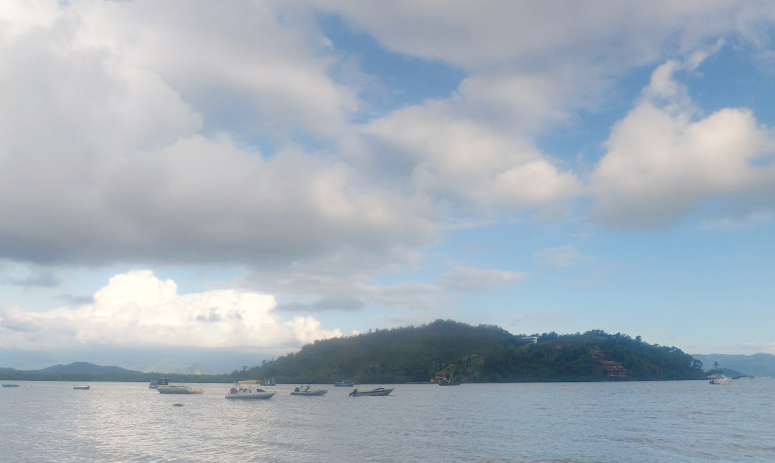Wreckage of notorious American slave ship sunk in Brazil may have been found
The Camargo had a lesser-known US role in bringing enslaved people to Brazil

Your support helps us to tell the story
From reproductive rights to climate change to Big Tech, The Independent is on the ground when the story is developing. Whether it's investigating the financials of Elon Musk's pro-Trump PAC or producing our latest documentary, 'The A Word', which shines a light on the American women fighting for reproductive rights, we know how important it is to parse out the facts from the messaging.
At such a critical moment in US history, we need reporters on the ground. Your donation allows us to keep sending journalists to speak to both sides of the story.
The Independent is trusted by Americans across the entire political spectrum. And unlike many other quality news outlets, we choose not to lock Americans out of our reporting and analysis with paywalls. We believe quality journalism should be available to everyone, paid for by those who can afford it.
Your support makes all the difference.Researchers believe they’ve found the lost wreck of the Camargo, a US slave ship that illegally transported and sold enslaved African people into bondage in Brazil in the early 1850s, The Washington Post reports.
If the wreck has indeed been found, it will mark the culmination of an epic search that’s spanned library archives, local communities, and the murky waters of Brazil’s Bracuí River.
The Camargo entered Brazilian waters in 1852, two years after the country passed a new anti-trafficking law.
Nathaniel Gordon of Maine – who later gained infamy as the only American ever executed for trafficking enslaved Africans — piloted the stolen vessel, with British and Brazilian authorities in pursuit.
Fearing capture, he’s believed to have sold over 500 enslaved Mozambicans, then set fire to the vessel and fled dressed in women’s clothing.
The escape was a scandal for Brazil, and prompted police to search surrounding plantations for the people who were aboard the vessel, a major milestone in efforts to crack down on the country’s slaveholding elites. Officials found a reported 75 people Gordon sold, including an 11-year-old child. Others are thought to have died in the wreck, escaped, or been forced into slavery.
The wreck of the Camargo — plus the US’s oft under-acknowledged role in propping up Brazilian slavery, with US-flagged ships bringing an estimated 430,000 enslaved people to the country between 1831 and 1850 – seemed to fade into darkness as time went on.
Researchers picked up the trail of the wreck in 1994, when historian Martha Abreu found newspaper clippings about it in Brazil’s national library.
Later, doing field research, she spoke with an elder in a community near the Bracuí founded by descendants of enslaved pepole, who told the historian that local people told stories of a ship that went down under similar circumstances, and that its location was known and considered a good fishing spot.
Later, researchers Luís Felipe Santos and Gilson Rambelli searched the river in scuba suits, eventually using a tip from a local fisherman with a similar story to locate a shipwreck in December 2024, which showed signs of burnt timbers and a copper-coated hull, matching the description of the Camargo.
“This is an answer for the communities here, that the stories they’ve always told were true,” Felipe told the Post. “They weren’t just stories.”
A follow-up investigation is planned for this May involving the Smithsonian National Museum of African American History and Culture and George Washington University.
Nearly a decade after fleeing the Camargo, Gordon was caught in the Congo with nearly 1,000 enslaved people, then sent back to the US where he was convicted and sentenced to death.
President Abraham Lincoln later denied an effort from associates of Gordon to seek a pardon.
“I believe I am kindly enough in nature, and can be moved to pity and to pardon the perpetrator of almost the worst crime that the mind of man can conceive or the arm of man can execute; but any man, who, for paltry gain and stimulated only by avarice, can rob Africa of her children to sell into interminable bondage, I never will pardon,” Lincoln said of the decision.
Join our commenting forum
Join thought-provoking conversations, follow other Independent readers and see their replies
Comments